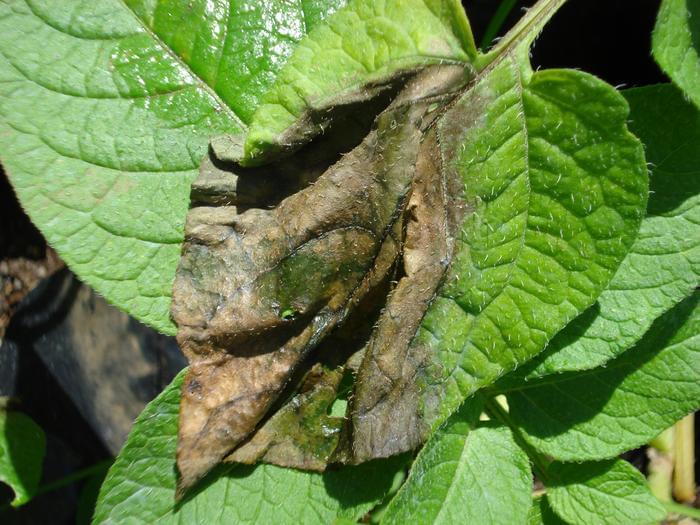Dr. Jean Ristaino: “We searched those descriptions by keywords, and by doing that we were able to recreate the original outbreak maps using location coordinates mentioned in the documents. We were also trying to learn what people were thinking about the disease at the time and where it came from.”
Can plant diseases be tracked through analyzing past reports? This is what a recent study published in Scientific Reports hopes to address as a team of researchers at North Carolina State University (NCSU) attempted to ascertain the causes behind blight disease on plants, known as Phytophthora infestans, that resulted in the Irish potato famine during the 1840s. This study holds the potential to help scientists and farmers not only better understand the causes of blight disease in plants, but also how they might be able to predict them in the future.
Image of a blight lesion on a potato leaf. (Credit: Jean Ristaino, NC State University)
For the study, the researchers analyzed United States farm reports from 1,843 to 1,845 by searching for keywords, including “evil”, “murrain”, “rot”, “black spots”, and “decay”, just to name a few, within the scanned documents using the computer programming language, Python. In the end, the researchers discovered a notable increase in the usage of the keywords, “disease”, “blight”, and “rot” within the reports between 1,843 and 1,845, with the researchers noting the usage of these keywords began occurring in 1,844, indicating the disease began in 1843.






